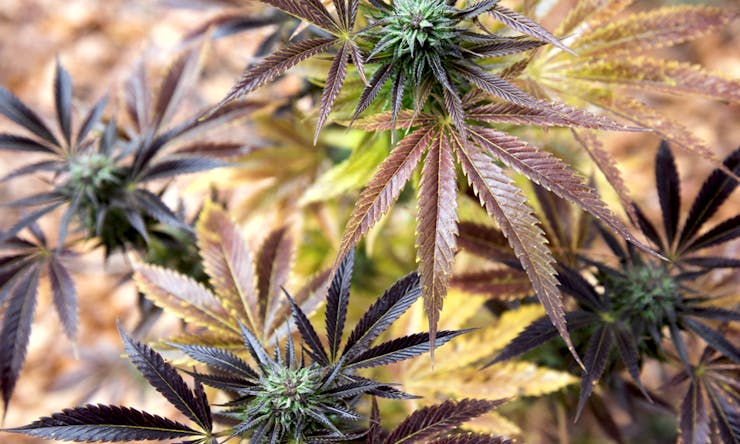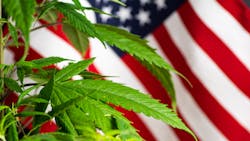In a 25-page memo to Congress last month, the DEA quietly announced it would make a determination on whether to reschedule cannabis from Schedule I — drugs the DEA considers as having high potential for abuse and no medical value — to a lower schedule. Since the announcement, cannabis advocates have been celebrating at the prospect of the federal government finally acknowledging what the medical community and patients have known for years: cannabis has therapeutic value and should not be classified alongside heroin as one of the most dangerous drugs known to mankind.
The wild-eyed optimism, however, of many pro-cannabis advocates could use a reality check. First, given the fact this is hardly the first time we’ve been down this path with the DEA, how likely is it that the DEA will finally embrace science and popular support? Second, if the DEA does decide to reclassify cannabis, what impact will its decision possibly have?
How Likely is a Cannabis Rescheduling?
Contrary to what has been popularly reported in the media, the DEA memo gave no indication as to how likely it would be that it would reschedule cannabis. The administration only stated it had received the Food and Drug Administration’s (FDA) scheduling recommendation and that it “hopes to release [its] determination in the first half of 2016.”
And, if anything should give us pause for unbridled enthusiasm, it’s acting DEA head Chuck Rosenberg’s famous proclamation last November that “the notion marijuana is also medicinal” is a “joke.”
Despite the fact the DEA has ignored the advice of the medical and scientific communities, and even its own administrative judges, numerous times over the last 40 years, Wall Street analyst and managing director of GreenWave Advisors, Matt Karnes, is optimistic:
“I believe the current petition to reclassify cannabis stands a much better chance than previous efforts, because medicinal cannabis has overwhelming support, not only from the public, but from politicians on both sides of the aisle and the science and medical communities. There’s too much inertia for the DEA not to reschedule.”
Bill Piper, Senior Director of National Affairs at the Drug Policy Alliance, is cautiously optimistic, and says, “I believe at the very least, the DEA will reschedule non-intoxicating CBD — if not remove it from scheduling altogether, and chances are good that they will also reschedule THC.” But, Piper cautions that while rescheduling would be a logical move on the part of the DEA, “it doesn’t solve the conflict between the states and federal government. De-scheduling would be ideal, but ultimately what we need is overall reform of the [antiquated], non-scientific scheduling system.”

What Impact Would Rescheduling Cannabis Have?
As Piper noted, ideally the DEA would de-schedule cannabis (like alcohol and tobacco), or reschedule at Schedule III or lower. However, given the DEA’s history, neither of those options are probable. If the DEA does move forward in the right direction, chances are it will proceed cautiously and move cannabis to Schedule II. Schedule II drugs are considered “dangerous” and having a “high potential for abuse, with use potentially leading to severe psychological or physical dependence.” Basically, cannabis would join an elite group of substances that includes OxyContin, cocaine, and methamphetamine, which, while potentially “dangerous,” have “medical value.”
Shop highly rated dispensaries near you
Showing you dispensaries nearWhile classifying cannabis along with drugs that claim tens of thousands of lives every year in North America may seem absurd — and it is — it would be a step in the right direction. Below is what rescheduling likely would or would not do:
Research
Cannabis research on human subjects would become easier. Currently, researchers must navigate an onerous bureaucratic system that since 2010 has approved on average just eight to nine cannabis studies per year. And, many people complain that the approval process is biased towards anti-cannabis studies.
Rescheduling, however, would not remove all barriers to research that are afforded to other clinical drug studies that would be required for cannabis products to become approved by the FDA. The DEA and National Institute on Drug Abuse (NIDA) have a monopoly on cannabis production. Critics argue that the monopoly limits supply; predictably, the DEA disagrees.
Criminal Justice
Contrary to popular belief, rescheduling doesn’t automatically ease federal criminal penalties, nor would it make the manufacture, possession, or distribution of marijuana legal. Patients and caregivers could still be prosecuted and their assets seized. However, according to attorney and drug policy reformer Luke Zimmerman, Esq., “If the DEA reschedules cannabis, it would send a powerful message to law enforcement and the courts in many of the more conservative municipalities, and that could result in more clemency and broader policy reform.”
Business
Rescheduling cannabis would help to solve the tax and banking issues cannabis businesses face. Currently, IRS rule 280(e) prohibits business from deducting most expenses. Likewise, the banking industry has been reticent to work with cannabis businesses, compelling much of the industry to operate only in cash. Note that IRS rule 280(e) includes both Schedule I and II drugs, so the DEA would need to reschedule cannabis to Schedule III or lower, or Congress would have to enact legislation to allow tax deductability for businesses selling Schedule II drugs.
Medical Community
Arguably, one of the most significant changes — and one that has been rarely discussed in the media — is that physicians would be legally permitted to prescribe cannabis. Under current law, because Schedule I drugs “technically” have no medical value, doctors are prohibited from prescribing them. This is why doctors in states where medical marijuana is legal will only issue recommendations, rather than prescriptions.
Bottom line: rescheduling marijuana would be a step in the right direction towards adopting a more sensible regulatory framework while expanding safe access to cannabis for patients who can benefit. Further, that the federal government has finally officially acknowledged cannabis’s medical value would be a significant victory. However, rescheduling is simply an incremental step in the fight; ultimately, we need to take a hard look at our current drug laws and move towards broader and more comprehensive reforms.











